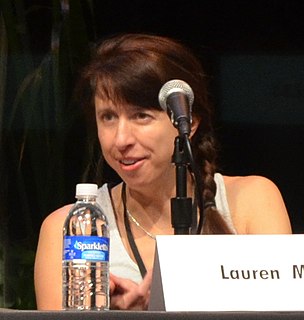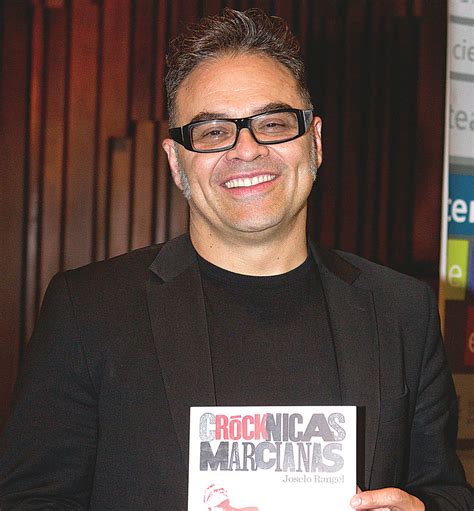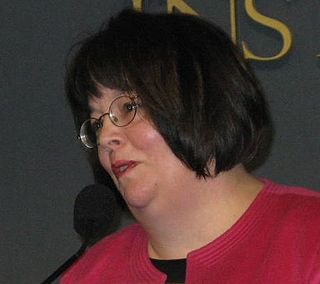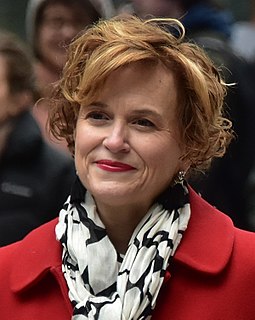A Quote by Jonathan Kozol
Many of us regard ourselves as mildly liberal or centrist politically, voice fairly pleasant sentiments about our poor children, contribute money to send poor kids to summer camp, feel benevolent. We're not nazis; we're nice people. We read sophisticated books. We go to church. We go to synagogue. Meanwhile, we put other people's children into an economic and environmental death zone. We make it hard for them to get out. We strip the place bare of amenities. And we sit back and say to ourselves, "Well, I hope that they don't kill each other off. But if they do, it's not my fault.
Quote Topics
About
Amenities
Back
Bare
Benevolent
Books
Camp
Centrist
Children
Church
Contribute
Death
Each
Economic
Environmental
Fairly
Fault
Feel
Get
Go
Hard
Hope
Kids
Liberal
Make
Many
Meanwhile
Money
Nice
Nice People
Off
Other
Our
Ourselves
Out
People
Place
Pleasant
Politically
Poor
Poor Children
Put
Read
Regard
Say
Send
Sentiments
Sit
Sophisticated
Strip
Summer
Summer Camp
Synagogue
Them
Us
Voice
Well
Zone
Related Quotes
A library is many things. It's a place to go, to get in out of the rain. It's a place to go if you want to sit and think. But particularly it is a place where books live, and where you can get in touch with other people, and other thoughts, through books. If you want to find out about something, the information is in the reference books---the dictionaries, the encyclopedias, the atlases. If you like to be told a story, the library is the place to go.
There’s only one thing we can be sure of, and that is the love that we have -- for our children, for our families, for each other. The warmth of a small child’s embrace -- that is true. The memories we have of them, the joy that they bring, the wonder we see through their eyes, that fierce and boundless love we feel for them, a love that takes us out of ourselves, and binds us to something larger -- we know that’s what matters. We know we’re always doing right when we’re taking care of them, when we’re teaching them well, when we’re showing acts of kindness. We don’t go wrong when we do that.
When it comes to horror there's a strange need to analyze. When "evil children" fad happened, there was The Exorcist and The Other and The Omen. People would say, "What this really means is that Americans don't want to have kids anymore. They feel hostility towards their own children. They feel they're being tied down and dragged down." In fact, in most cases, what those books are about is nice children who are beset by forces beyond their control.
But I hope to maintain my credibility after I stop playing. Because, yes of course, now I play and I score goals and children all over are mad about me. Not just poor children - all children. We can make them really happy by the way we play, though I have to say that it's the poor ones that I think of most, the ones who can't come and watch the games at the stadium. We mean so much to them. That's why I'm so committed to this work. Later, after you've stopped playing, it's harder to have the same impact. But I will give it a go. I want to continue doing this kind of work for ever.
We don't think of ourselves in Cafe Tacvba as representatives. When we go and make new material, we feel that our creations are more authentic if we think of ourselves. We don't say, "Let's be the representatives and show the moment that our society is in." But when it comes to performing and we visit other countries, like New York, many people approach us, people who are outside of their own country, and we become a referent. Our shows become this sort of ritual, and our performances become that moment of identity.
So you go away from where you were afraid. Some stay; some go; it's a big difference, leaving the humiliations of childhood, the morbid fear. We didn't have much to say to each other, the ones that left and the ones that stayed. Children get shamed by fear but you can't tell the adults that; they don't care. They make children into dead things like they are. If there's something left alive in you, you run. You run from the poor little child on her knees; fear burned the skin off all right; she's still on her knees, dead and raw and tender.
We judge people in areas where we’re vulnerable to shame, especially picking folks who are doing worse than we’re doing. If I feel good about my parenting, I have no interest in judging other people’s choices. If I feel good about my body, I don’t go around making fun of other people’s weight or appearance. We’re hard on each other because we’re using each other as a launching pad out of our own perceived deficiency.





































